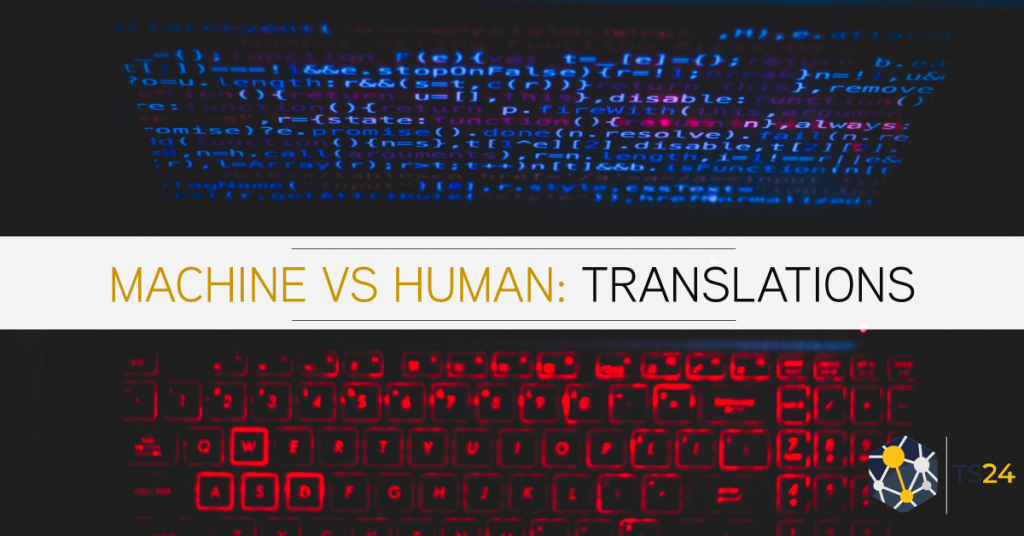Machine vs Human Translation: Which Is Better & Why?
As the world keeps turning into a global village, there is a more-than-ever need to interact in more than one language. Of course, that means learning more languages, but that’s not always a feasible option for everyone.
So, most people turn to tech tools like Google Translate and others to get past the language barrier. Whether it’s students, professionals, or tourists, everyone has used machine translation services.
But when you look at machine translation from a professional angle, you will find many loopholes, and there is a lot of work still needed to ensure perfection. It’s one of the many reasons you might need professional translation services by humans.
The Surge of Machine Translation
Interestingly, language is no longer an obstacle for most people. Think of how you can watch your favourite shows online with subtitles in your preferred language. It’s a classic example of how we’re quickly adapting to machine translation services.
Moreover, as machine learning and artificial intelligence take over, tools like natural language processing are helping machines to understand human slang to improve translation services. Devices are slowly becoming more capable of translating the contextual meaning of sentences.
Now, machines can translate entire web pages within seconds. And the way things are going, it’s possible that we will be reliant on machine translation even more.
Combining these traits with no operational cost makes machine translation an appealing option for new businesses. Often, startups and low-budget firms prefer these tools for quick translations. Usually, it does the job, but there are some downsides to that.
The Drawbacks of Machine Translations
Even with such accuracy and popularity, machine translation services have some gaps to fill. Perhaps that’s why you need a certified translation service provider when you want to translate critical documents for your business, education, or travelling.
But the problem with machine translation is that it often neglects human emotions. Compared to a human translator, a machine translator will always give you the exact word-by-word translations, which means you can often miss the point of a particular sentence.
Often results from Google translate are pretty funny and lack accuracy. It’s just because the machine doesn’t get the emotions right sometimes.
Machine vs. Human Translators
So how does machine translation compare with human translation, and which is the better option for you? Here are a few things to consider.
Translation Cost
Machines have always made it easier and more cost-efficient to deal with problems. For translations, the story remains the same. There are many free translation tools available online. For instance, Google Translate is a popular option – It’s free, and it’s incredibly fast too. Bing as well as other large companies are also investing heavily in their own translation products.
On the other hand, human translation services require funds and budgeting. At times, the more experienced your translation firm is, the more money it will charge. So, if your priority is to save costs on translations, then machine translation is your best bet, but you get what you pay as the good saying goes.
Translation Speed
Machines can translate entire web pages at an incredibly high speed. They are ideal if you have more extensive content and time constraints, and the result doesn’t matter as much.
Human translation services are nowhere near as fast, which is understandable. However, its accuracy is likely to be much higher than that of machine
translation. So, a machine translation is the right option if you don’t have much time and want to translate content quickly.
Contextual Translation
Context is critical for accurate translations. Inaccurate context can completely change the meaning of a sentence, which isn’t what you want for your professional dealings.
For instance, words like run, right, cut, etc., have broader contextual meanings. Unfortunately, machine translations are often unable to pick these up, so they miss out on subtle variations in the meaning. Hence, it leads to inaccurate translations.
On the other hand, human translators understand the context and possible creative aspects. Therefore, they are more likely to provide translations that capture the essence of the content. Hence, they can more accurately translate the content and add certain words based on their experience.
Therefore, if the contextual meaning is crucial to you, human translation services are inevitable for your needs.
High Priority Content
There are certain areas where you can get away with machine translations. For instance, if it’s short paragraphs or informal blogs, machine translation can be good enough.
However, if you have high priority content, such as marketing content for potential sales or legal contracts, it’s not a great idea to risk your translation efforts. In such a case, you need a human translator who can select the words accurately and provide a better contextual understanding of your marketing content.
High priority content requires more accuracy, and that’s only possible with a human translation service.
When to Use Machine Translation
Now that you know the highs and lows of machine translation, and if you are ever thinking of using one, although we suggest avoiding them as much as possible, here are some points to consider:
• A machine translation tool should easily translate basic content without much creativity, i.e., guidelines, directions, etc.
• If you are testing a new market and not ready for an expansion, a machine translation tool can be a suitable option because there is less complexity in your project.
• If you are short on time and a low accuracy translation would be sufficient, go for machine translation.
When to Use Human Translation
Human or professional translation services are the best option when:
• You think it’s important to communicate accurately.
• You want highly accurate translated content.
• You want quality content that includes context and localisation.
Conclusion
Whether it is machine translations or human translations, both have pros and cons, but human translations are the better option. It all depends on the seriousness and accuracy of your needs. For instance, if you’re looking to expand your business in the UK, it’s best to utilise a certified translation service to get the best translation for your business content.
Machine translation tools are improving significantly. However, the value of human translators is still indispensable as there are certain aspects of translations that only they can get right.



